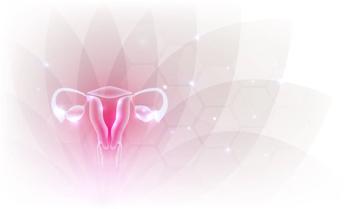
A discussion about treatment options for women's sexual dysfunction
At the International Society for the Study of Women’s Sexual Health (ISSWSH) conference, held this year March 2 to 5 in St. Louis, Missouri, Contemporary OB/GYN®’s digital editor, Michael Krychman, MD, spoke with Ashley Tapscott, a board-certified urologist trained in male and female sexual dysfunction, who works in Charlotte, North Carolina.
Michael Krychman, MD
I know you are well known at the Sexual Medicine Society of North America, and here you are now at . ISSWSH. Tell us, what's been going on in your world?
Ashley Tapscott, MD
Thank you so much. I'm so proud to represent the urology community in both male and female sexual dysfunction. And I think what's most important right now is that we have really seen the durability of the first FDA-approved treatment for women with hypoactive sexual desire disorder (HSDD) or low libido. I continue to see great results with this new treatment, flibanserin (Addyi) within my clinical practice. My practice includes both male and female patients with sexual dysfunction and as I say, it does me no good to give the guys a Ferrari if they don't have a garage to park it in. So I think, what we have seen going forward from 2015, when flibanserin was first approved, is a continuation of a good efficacy profile that meets or beats the standard of the FDA clinical trials, as well as an excellent durable safety profile for these women so we can feel confident, give them that libido and desire back. And I continue to be proud of this product, this medication and its results for my patient.
MK
I know it's had some bumps along its journey. I think it’s really important to understand that women are suffering in silence, and we have few FDA treatment opportunities. So, you know, it's really important that we look at the totality of the problem, we look at the woman, we do a comprehensive evaluation and assessment. Anything else going on in your neck of the woods in terms of neurological issues?
AT
I think it is important that with genital urinary symptoms of menopause (GSM), dyspareunia, with all of these things, we now have some great products. I think what's really interesting is that I've seen in the past couple of years 2 main trends, during COVID-19 and post COVID-19. Number one is that [sexual] partners went to their phones first. We didn't go into doctor’s offices, because intimate health care became much more accessible, [including] the mental health community, as well as couples care. It was a lot of time with your couple, your partner during COVID-19. So you either really loved them, or you really hated them. And we worked on things that maybe were falling apart. And as health care professionals, mental health care professionals, sexual medicine professionals, this is when we have seen these patients really take this matter into their own hands, and post-COVID, these people are continuing to work with mental health professionals through telehealth options. And I'm so proud of this network of providers that have worked and are working with these people.
But going back to medications, there are only 2 FDA-approved treatments for female sexual dysfunction in the world (bremelanotide and flibanserin). So it's 27 for men and 2 for women, so we continue to need to even the score and I continue to look forward to doing that for my patients and my partners in care in the future.
Newsletter
Get the latest clinical updates, case studies, and expert commentary in obstetric and gynecologic care. Sign up now to stay informed.








